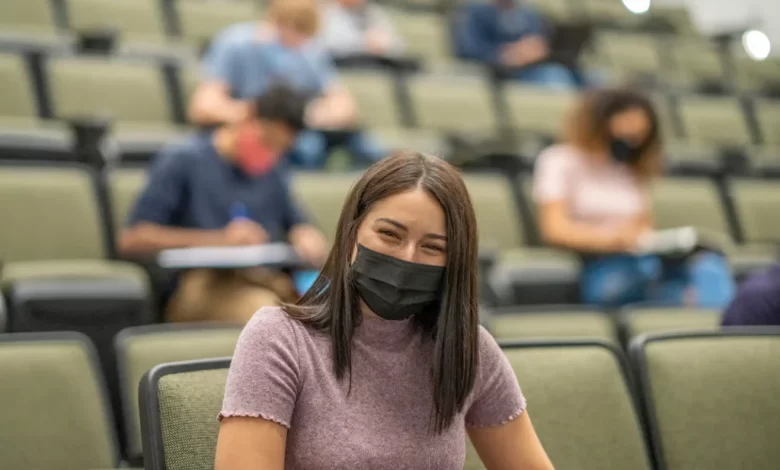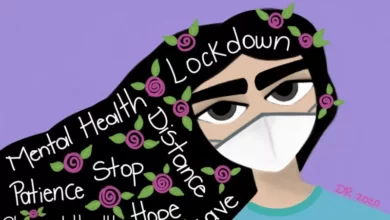The Impact of COVID-19 on College Admissions: Changes in Policies and Procedures

The COVID-19 pandemic has significantly disrupted various aspects of our lives, including the field of education. One particular area that has witnessed substantial changes is the college admissions process. In this article, we will explore how the pandemic has influenced college admissions policies and procedures, leading to a paradigm shift in the way prospective students apply to and are accepted into universities.
Introduction
Before delving into the impact of COVID-19 on college admissions, it’s essential to understand the traditional pre-COVID process. Historically, students would prepare for standardized tests, such as the SAT or ACT, and submit their scores along with their applications. They would visit campuses, participate in interviews, and engage in extracurricular activities to enhance their chances of acceptance.
COVID-19 and its Impact on College Admissions
The outbreak of the COVID-19 virus necessitated drastic changes in the college admissions landscape. Universities had to quickly adapt to remote operations and find alternative ways to assess applicants fairly. Here are some key changes that have occurred:
Shift to Online Admissions
With social distancing measures in place, colleges and universities had to transition their admissions processes online. Prospective students now submit their applications electronically, eliminating the need for physical paperwork. This shift has streamlined the process, making it more accessible and efficient for applicants.
Cancellation of Standardized Tests
Due to test center closures and concerns regarding in-person testing, many colleges and universities made standardized tests optional or eliminated them altogether for the admission cycle. This decision aimed to level the playing field and acknowledge the challenges faced by students during the pandemic.
Changes in Application Deadlines
To accommodate the uncertainties caused by the pandemic, numerous institutions adjusted their application deadlines. Extended deadlines provided students with additional time to finalize their applications and gather necessary documentation.
Virtual Campus Tours and Interviews
In place of in-person visits, colleges and universities offered virtual campus tours and online interviews. These alternatives allowed prospective students to gain insights into the campuses and interact with admissions representatives while adhering to social distancing guidelines.
Changes in Admission Policies
COVID-19 prompted colleges and universities to reevaluate their admission policies to reflect the current circumstances. Here are some notable changes:
Test-Optional and Test-Blind Policies
Recognizing the limitations and barriers students faced in taking standardized tests, many institutions implemented test-optional or test-blind policies. This change aimed to provide equal opportunities for students with limited access to testing resources and alleviate the undue emphasis on test scores in the admissions process.
Holistic Review of Applications
With the elimination or reduced emphasis on standardized test scores, colleges shifted their focus to a more holistic review of applications. Admissions officers now place greater importance on other aspects, such as GPA, extracurricular activities, personal statements, letters of recommendation, and essays. This approach allows admissions officers to gain a more comprehensive understanding of each applicant’s strengths, talents, and potential contributions to the university community.
Focus on Extracurricular Activities and Community Service
In light of the limitations imposed by the pandemic, colleges have placed increased importance on an applicant’s involvement in extracurricular activities and community service. They recognize the value of students who have demonstrated resilience, adaptability, and a commitment to making a positive impact despite the challenges presented by the pandemic.
Increased Flexibility in Admission Decisions
The pandemic has forced colleges to be more flexible in their admission decisions. Admissions committees understand that students’ academic records and achievements may have been affected by disruptions in their learning environments. Consequently, they are taking a more compassionate and understanding approach, considering the broader context in which students’ accomplishments were achieved.
Financial Aid and Scholarships
The financial implications of the pandemic have also influenced college admissions policies. Here are some notable changes in financial aid and scholarships:
Changes in Financial Aid Requirements
Given the economic impact of the pandemic, financial aid offices have adjusted their requirements to accommodate the changing financial circumstances of families. They may take into account job losses, reduced income, or increased medical expenses when determining financial aid packages.
Availability of Emergency Funds
To support students facing unexpected financial difficulties due to the pandemic, many colleges have established emergency funds. These funds provide financial assistance to students who find themselves in dire situations and are unable to meet essential needs.
Scholarships for COVID-19 Affected Students
Recognizing the unique challenges faced by students during this time, some institutions and private organizations have created scholarships specifically for those affected by the COVID-19 pandemic. These scholarships aim to alleviate the financial burden and help students continue their education despite the hardships they have endured.
Impact on International Students
The impact of COVID-19 on college admissions extends beyond domestic applicants and affects international students as well. Here are some key considerations for international students:
Travel Restrictions and Visa Issues
Travel restrictions and visa limitations have posed significant challenges for international students who planned to study abroad. Many have had to defer their admissions or pursue online learning options from their home countries.
Online Learning and Remote Options
To accommodate international students who are unable to travel, colleges have introduced online learning and remote options. These alternatives allow students to begin their academic journey remotely and transition to in-person learning once travel restrictions are lifted.
Changes in Admission Quotas
In response to the uncertainties brought about by the pandemic, some institutions have adjusted their admission quotas for international students. They may have reduced the number of incoming international students to account for potential logistical challenges or capacity limitations.
Mental Health Considerations
The pandemic has taken a toll on the mental health of students. Recognizing this, colleges have implemented measures to address mental health concerns:
Increased Stress and Anxiety
The disruptions caused by the pandemic, such as remote learning, social isolation, and uncertainties about the future, have led to increased stress and anxiety among students. Colleges are actively prioritizing mental health support services to help students cope with these challenges.
Support Services and Resources
Colleges have expanded their mental health support services and resources. This includes virtual counseling sessions, support hotlines, online resources, and peer support groups. These initiatives aim to ensure that students have access to the help they need to navigate their college journey successfully.
Adaptation to Virtual Learning Environments
With the shift to online learning, colleges are providing additional support and resources to help students adapt to virtual learning environments. They offer technical assistance, online tutorials, and interactive platforms to facilitate effective online learning experiences.



